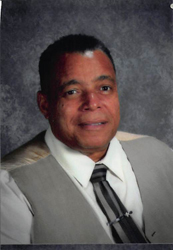Pioneers on the road to right injustice
Published 11:32 am Wednesday, March 9, 2016

- William McCargo
It is hard to imagine in the 21st century as a democratic society of the United States, land of the free and home of the brave, that one human can own another human as a piece of property; a human to dominate another human in controlling their destiny. Yes, control their destiny in education and in business. As a slave, our God-given right of equality was a hopeless dream.
The freedom to be educated as a slave was unreachable. Blacks were beaten or killed if they were caught reading.
Under the cover of darkness they would read by candle in hope of not being discovered. Freedom, the power of learning for slaves, was to free themselves; to recognize political justice and educational components of America as a society.
Trending
Black schools had fewer books, worse buildings, great teachers with less pay.
One of the darkest periods of American history for blacks was that people promoted segregation in public education, establishing the separate-but-equal rule, racially separating white and black facilities in the belief that separate and equal did not violate the law of the land, the Constitution. This doctrine prevailed until the case of Brown vs. Board of Education (1954), when the Supreme Court ruled unanimously that racial segregation of children in public schools violated the equal protection clause of the 14th amendment of the Constitution, which started the process to desegregate public schools.
Charlotte County school’s system was part of this process of desegregation of public schools, such as Randolph-Henry High School (white) and Central High School (black); students enrolled experienced the same struggles to commit to the right justice and equal education for all students.
Charlotte County’s pioneers who embodied the road to right the injustices of education were many black men and women. They were Fountain Moody, Walicia Kelsaw, Thelma Harvey-Hall, Andrew Prophet, Mary Dupee, Eugene Wells, Nanny Hunter and many others who help balance our educational system.
There are those black educators who provided a curriculum arena for blacks to achieve success, such as Berry Weldon, who advanced a special reading program to Charlotte County. Ruth Brogdon supervised other highly qualified educators to teach children to reach their goals. Charlene Bowman, the first black female principal at Randolph-Henry High School, ushered the SOLs into the school system. Sylvia Lockett, principal of Bacon District Elementary, believes that all students can be taught to their fullest potential.
Dr. Hezetine Foster, who created new visions for an educational curriculum system and is president of Central High Museum Inc., promoted a Black History legacy. Alethea Wells’ dedicated service to education still echoes excellence.
Trending
We as citizens of the United States must use dialogue, for we must not exclude these issues as if they don’t exist.
Thanks to this newspaper for its support and the opportunity to write these articles for Black History Month. A special thanks to Brenda Lawrence for her editing of all articles.
William H. McCargo is a retired teacher, owner of Duck Puddle Childcare and president of the Charlotte County NAACP. He can be reached at cropcorw@aol.com.




